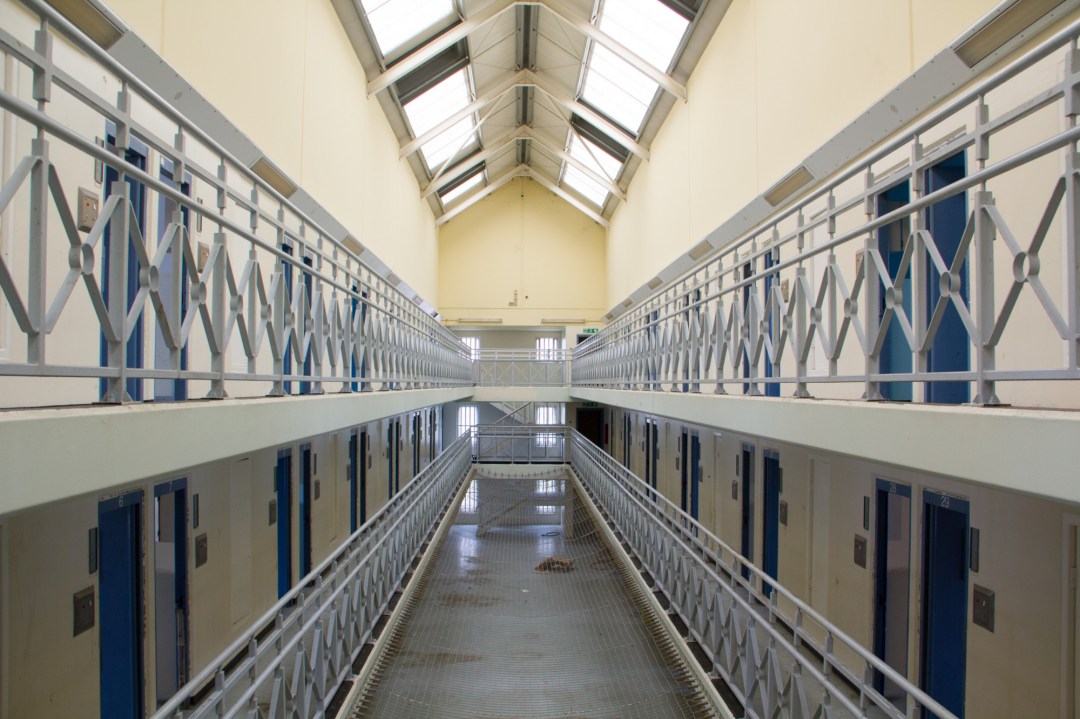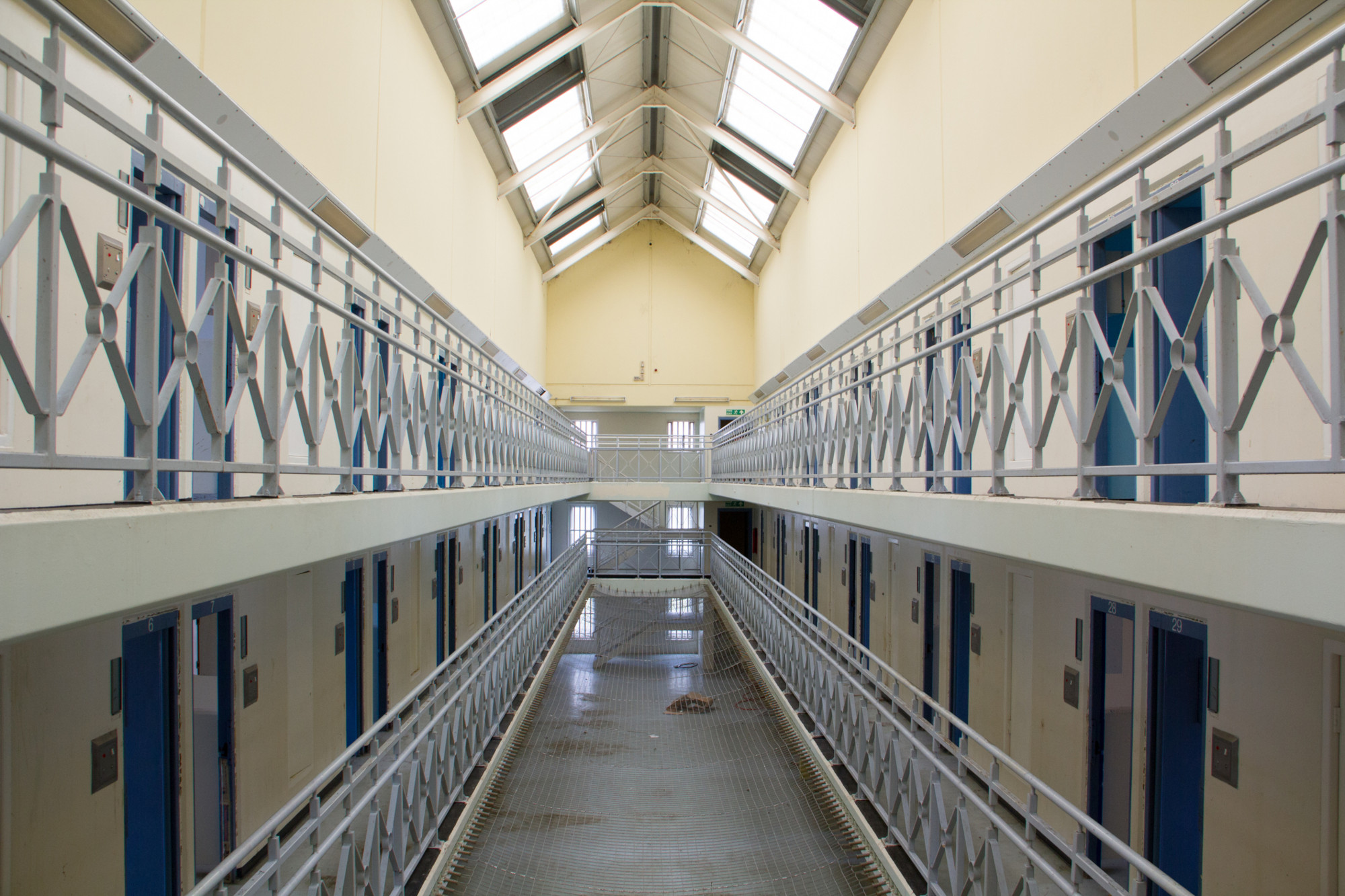The Prison Officers’ Association (POA) and its national chair Mark Fairhurst have a reputation for always wanting prisons to be more secure and more punitive. So it was a surprise when Fairhurst told me he opposes the government’s new prison building programme, and went on to describe his ideal justice system in terms which the most soft-hearted prison reform charities would struggle to disagree with.
‘All we’re going to do…is spend £4.7 billion building 14,000 new prison spaces. And if you build new prisons you’ll always fill them’
I met with Fairhurst a few days after the POA’s annual conference in Eastbourne, a busy time for him because ‘everybody wants a piece of me’. I attended the annual gathering for the union which represents frontline prison staff. Sadly it was marred by news of multiple assaults on prison officers, at HMP Woodhill and HMP Gartree. As word spread on Wednesday morning I was struck by how unsurprised the delegates were. Fairhurst agreed, saying ‘it’s normal now isn’t it – an everyday occurrence’.
Raised in Liverpool, Fairhurst joined the prison service in 1992, serving at HMP Frankland and Lancaster Farms Young Offender Institution before transferring ‘home’ to HMP Liverpool in 1999, where he still serves. Our relationship didn’t start very well. Last spring on Newsnight I said that ‘most contraband is brought into jails by people who work there’ which he saw as an attack on his members. After a healthy debate on Twitter, we agreed to meet for coffee and although there’s much we disagree on we found we have a lot of common ground.
Over his decades in the role Fairhurst has seen attacks on staff in prisons become increasingly common.
‘Society’s become more violent, especially when it comes to the use of knives. So why do we expect people incarcerated for violence to suddenly become law abiding citizens just because they’re in prison? They’ve lived their life by violence so that’s not going to change.’ He also believes that the lack of mental health care creates problems in the prison system, with many people who should be receiving treatment instead being thrown into our jails. This rising violence means that prison officers are more likely to be attacked in the line of duty than the police, and report high levels of PTSD. So the POA have been campaigning hard to make their members safer.
‘At the moment we’ve got this procedural justice and rehabilitation culture where you’re not allowed to be punitive, but it’s clearly not working, is it?’ He believes that this is driven by prison management who spend ‘nine months as a prison officer’ and become ‘a deputy governor within three years.’ Fairhurst says this lack of understanding contributes to tension between frontline staff and management, and drives a culture which is unwilling to be punitive when necessary.
His concern over culture has been particularly heightened of late. In the wake of recent high-profile attacks on staff, especially at HMP Frankland, and the POA’s fear that an officer will soon be murdered, the union have achieved two long-standing goals. Pepper spray will be issued to staff in Young Offenders Institutions for the first time, and the government has just announced staff will be issued with stab vests. The pepper spray decision has proven particularly controversial, with the Howard League launching legal action against the government and criticising the POA in the strongest terms.
I asked Fairhurst what a prison should look like, if it wants to turn people away from violence. I expected him to talk about order, control and discipline. But in fact he mentioned two therapeutic jails, Warren Hill and Grendon, which have a small number of prisoners, ‘plenty of staff, rehabilitation courses and give people hope’. He believes that smaller jails are far superior to the ‘human warehouses’ with a thousand or more inmates.
It is at this point our conversation turned to the government’s plan to build another 14,000 prison spaces, including three new jails which will each hold 1,700 prisoners. Fairhurst was scathing.
‘All we’re going to do…is spend £4.7 billion building 14,000 new prison spaces. And if you build new prisons you’ll always fill them.’ He also objects to the size of these new jails. ‘You just can’t do anything with people when there’s that many housed there with a variety of complex needs…they’re just too big, you won’t be able to employ enough staff to cater for their needs.’
The £4.7 billion budget means each new prison place will cost around £335,000. Fairhurst believes it’s a waste. ‘You could do a lot with that…the estate could be totally modernised, we could fund secure mental health beds in our communities to get people out of prison, we could reform probation and fund them. You could do so much with that £4.7 billion, but all we’re going to do is build new prisons.’
Our conversation turned to David Gauke’s Sentencing Review, calling for earlier releases for well-behaved prisoners, greater use of community sentences and deporting foreign national prisoners.
Fairhurst is broadly supportive. ‘If you’re drug free and you go to work and you learn a skill and you’ve broken no rules, let’s get you out early because clearly you want to change. I’m all for that.’ However he doesn’t believe the big prisons like Durham, Liverpool, Leeds and Wandsworth where I was jailed will benefit because they can’t offer enough positive activities for inmates.
He does question the government’s plans for technology to create a prison outside of prison, with people confined to their homes via tagging technology. He notes that the outsourced tagging provider Serco has struggled over the last year, often taking weeks to tag people.
So what would he do, if he was Lord Chancellor? The answer surprised me. Fairhurst would seek to halve the prison population, moving 20,000 mentally ill people into treatment, seeking to repatriate foreign national offenders, releasing the vast majority of women prisoners, scrapping sentences shorter than 12 months and releasing ‘at least half’ of people serving IPP sentences.
Then Fairhurst would use the extra space to convert prison cells into self-contained flats where prisoners would prepare their own food, while attending ‘at least 30 hours a week of some form of activity’, the aim being that they’d be released able ‘to live a self-sufficient life’.
As a good union man though, he takes issue with prisoners’ pay. Currently most prison jobs pay about £20 a week full-time. Fairhurst believes that if inmates are working they should be paid minimum wage, with their earnings split equally between the Victims Surcharge Fund, a savings account for their release and money to spend in prison.
So, no more prison building, halving the prison population, paying inmates the minimum wage and giving prisoners their own bedsit instead of a cell. In many ways it’s more ambitious than anything his critics at the Howard League are calling for. If only they could agree on pepper spray.








Comments